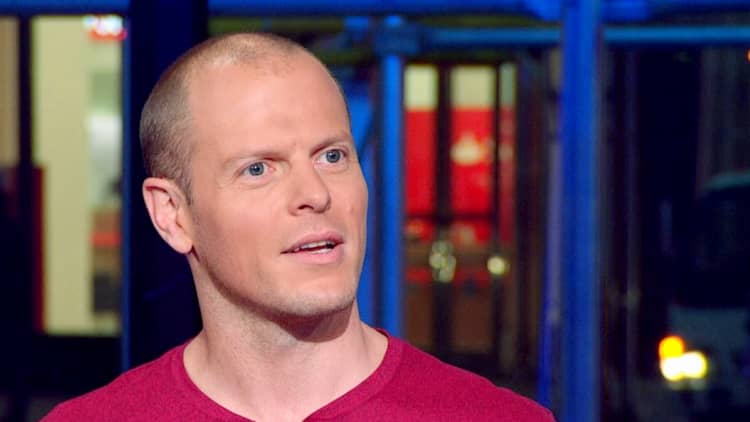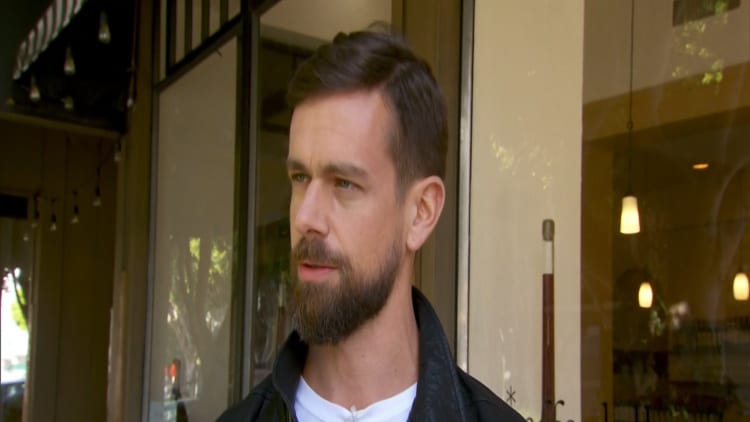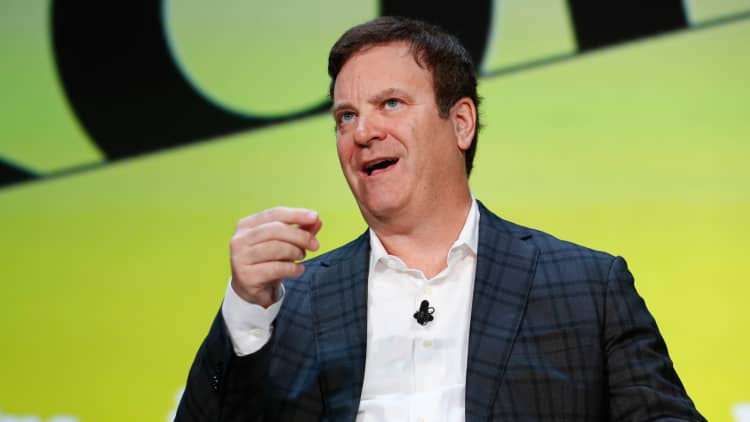Tim Ferriss started his career like many people just out of college do: Stuck in a not-so-glamorous desk job.
"When I wasn't driving my mom's hand-me-down minivan to and from the office in San Jose, California, I was cold-calling and cold-emailing," he writes in his new book, "Tools of Titans." He wasn't enjoying himself. "'Smiling and dialing' was brutal."
Today, the entrepreneur and tech investor is the author of three New York Times bestsellers, including "The 4-Hour Workweek." He's also launched a successful podcast, "The Tim Ferriss Show," and has starred in a TV show, "The Tim Ferriss Experiment."
In "Tools of Titans," Ferriss shares 17 questions that have "dramatically changed" his life, 10 of which CNBC highlights below.
When applying these questions to your life, "be sure to look for simple solutions," Ferriss writes. "If the answer isn't simple, it's probably not the right answer."
1. What if I tried something completely different for 48 hours?
After months of struggling in his first job out of college — selling data storage to CEOs and CTOs — Ferriss decided to experiment with doing the opposite of all the other sales reps: He made his sales calls from 7:00 a.m. to 8:30 a.m. and 6:00 p.m. to 7:30 p.m., rather than between 9:00 a.m. and 5:00 p.m. He asked questions instead of pitching. And he studied technical material in order to sound like an engineer rather than a sales guy.
"The experiments paid off," he writes. "My last quarter in that job, I outsold the entire L.A. office of our biggest competitor."
Not surprisingly, the most successful people tend to think differently from the masses.
2. What do I spend a silly amount of money on?
"To explore business opportunities, I didn't do in-depth market research," the entrepreneur writes. "I started with my credit card statement and asked myself, 'What do I spend a silly amount of money on?'"
For Ferriss, the answer was sports supplements, so he created a product that scratched his own itch: A cognitive enhancer called BrainQUICKEN.
What do you spend a big chunk of your income on?

3. If I could only work two hours per week on my business, what would I do?
While Ferriss admits that this scenario is highly unlikely, answering the question forces you to think about how to run your business more efficiently.
He follows the "80/20" principle, which, he writes, "dictates that 80% (or more) of your desired outcomes are the result of 20% (or less) of your activities and inputs." Ferriss likes to ask two related questions: "What 20% of customers/products/regions are producing 80% of the profit? What factors or shared characteristics might account for this?"
People don't like being sold products, but we all like being told stories.Tim Ferrissauthor and entrepreneur
4. What if I couldn't pitch my product directly?
While launching his bestseller "The 4-Hour Workweek," Ferriss quickly realized that "most media rightly don't give a rat's a** about book launches. They care about stories, not announcements, so I asked myself … 'What if I had to sell around the product?'"
He started showcasing people from his book who had redesigned their lives. He even blogged about fun, unrelated experiments, which ultimately drove people back to the book website.
"People don't like being sold products, but we all like being told stories," he writes. "Work on the latter."
5. What if I created my own real-world MBA?
Ferriss always dreamed of getting an MBA. Then he actually sat in on a business school class.
Instead of paying to pursue the degree, he decided to create his own "real-world MBA." He set up a two-year "Tim Ferriss Fund" of $120,000 — roughly the cost of two years at business school — to use for angel investing.
"The two-year plan was to methodically spend $120K for the learning experience, not for the ROI," he writes. "To learn as much as possible about startup finance, deal structuring, rapid product design, initiating acquisition conversations, etc."
6. What if I could only subtract to solve problems?
When Ferriss started advising start-ups in 2008, "instead of answering, 'What should we do?' I tried first to hone in on answering, 'What should we simplify?'" he writes.
Adding elements to your company is often expensive and time-consuming but removing things isn't.
Ferriss continues, "I've since applied this 'What if I could only subtract …?' to my life in many areas, and I sometimes rephrase it as 'What should I put on my not-to-do list?'"

7. What might I put in place to allow me to go off the grid for 4-8 weeks?
Whether you want to go off the grid or not, asking this question forces you to "put systems and policies in place … empower other people with rules and tools, separate the critical few from the trivial many, and otherwise, create a machine that doesn't require you behind the driver's wheel 24/7," Ferriss writes.
More importantly, "the systems far outlive the vacation, and when you come home, you'll realize that you've taken your business (and life) to the next level."
8. What would this look like if it were easy?
People tend to make things more complex than they need to be, and Ferriss admits that he is no exception. "If I feel stressed, stretched thin, or overwhelmed, it's usually because I'm over-complicating something or failing to take the simple/easy path because I feel I should be trying 'harder,'" he writes.
His solution is to ask, "What would this look like if it were easy?"

9. How can I throw money at this problem?
"In the beginning of your career, you spend time to earn money," Ferriss writes. "Once you hit your stride in any capacity, you should spend money to earn time, as the latter is nonrenewable."
10. No hurry, no pause.
"This isn't a question — it's a fundamental reset," Ferriss writes. "You don't need to go through life huffing and puffing, straining and red-faced. You can get 95% of the results you want by calmly putting one foot in front of the other."



